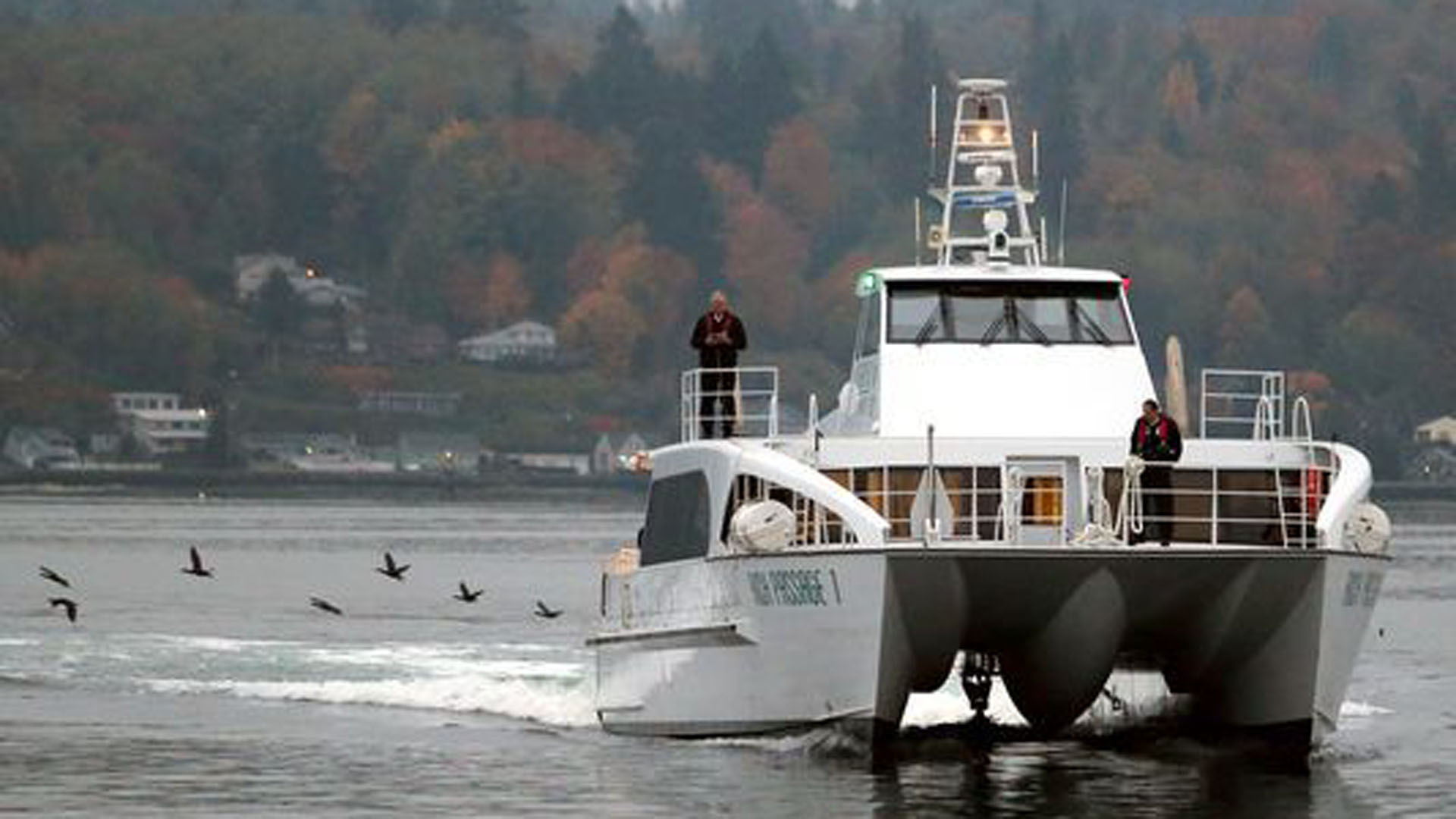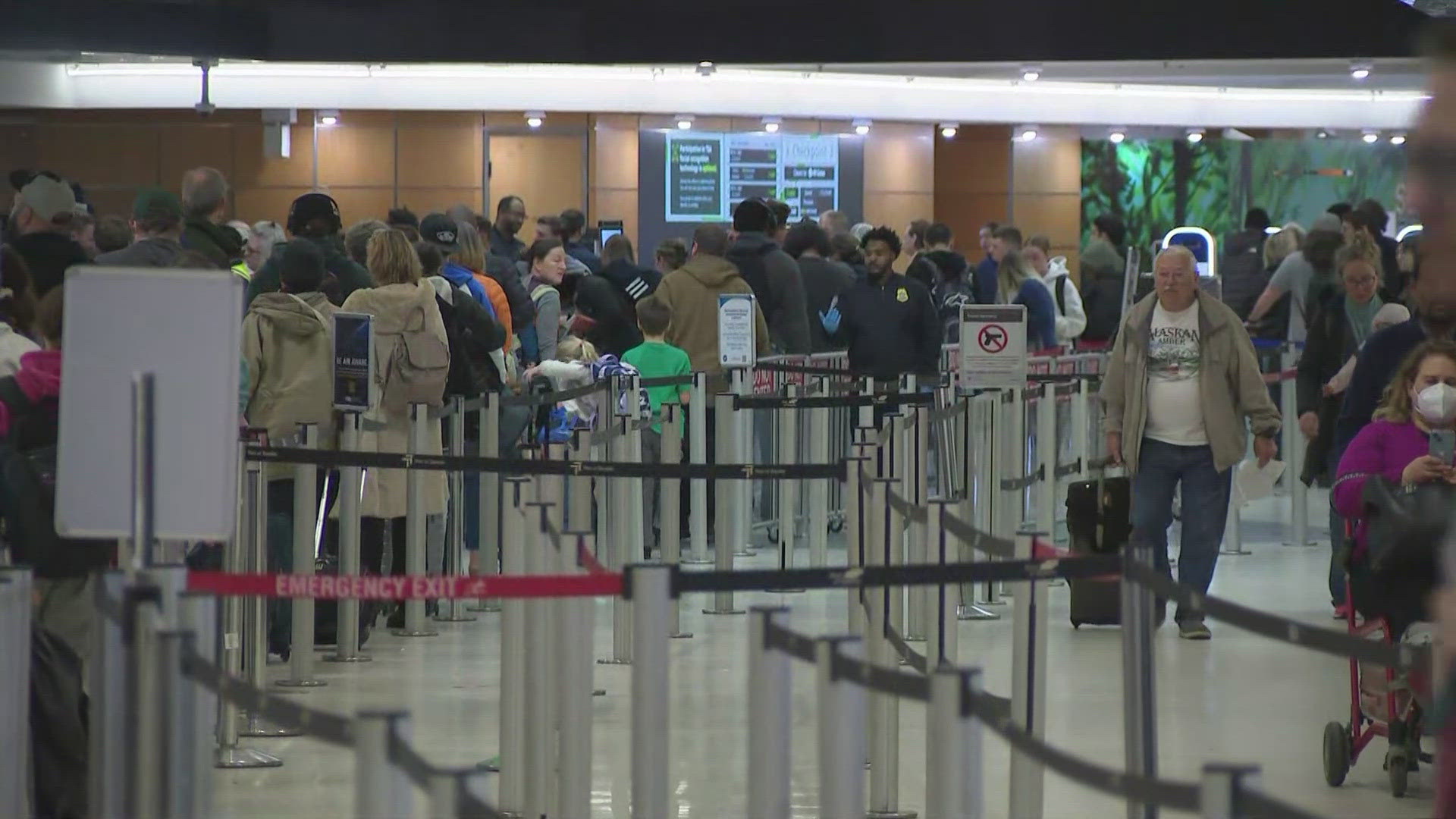BREMERTON — In November 2016, Kitsap Transit asked voters for help kick-starting a passenger-only fast ferry to Seattle.
It was the agency’s third ask in 15 years, and this time it worked. Voters approved a 3/10 of a percent sales tax increase to fund half-hour crossings to Seattle that started in July.
Since then, frequent breakdowns and unplanned expenditures have drawn the ire of critics, who argue the service is a waste of taxpayer dollars. But transit officials say the service is treading water financially and positioning itself for the future.
To fund the fast ferry, Kitsap Transit’s plan counted on a mix of federal grants, taxpayer dollars and fares. But federal grants didn’t materialize, and ticket sales in the first few months have been below projections.
From July to the end of 2017, Kitsap Transit expected about $700,000 in ticket revenue. According to revenue data for August and September, just under $163,000 has been collected, around $286,000 under budget.
Frequent service interruptions have a part in the shortfall, but ridership has been mostly steady. There isn’t enough data to firmly pin down a trend, but Kitsap Transit financial director Paul Shinners thinks the missing revenue could be tied to an interaction with the ORCA system.
The problem specifically is with ORCA Passport, a program that allows businesses to buy all-access transit passes for employees. Employers sign a contract with ORCA, with prices based on how many trips employees have taken on that transit system in the past 6 to 12 months. If a new transit system is started, anyone with a passport can use it, even if no contracts have been priced with trips from that service.
Contracts renew on separate schedules. Since fast ferry service only started in July, Kitsap Transit may have to wait up to a year to see its full revenue. About 40 percent of fast ferry riders use ORCA Passports, which could account for the shortfall.
“The biggest impact in terms of missing this estimated planned amount is the fare realization,” Shinners said. “And we think that could be that a significant portion of the ridership is (using a) regional pass.”
Funds lost from fares are being partly offset by sales tax revenue, which so far is 3.7 percent, or $207,000, more than what was projected when service started in July.
Most of the startup costs are being shouldered by $45 million in general obligation bonds, approved by the transit board in June and backed by both the 3/10 of a percent sales tax and the 8/10 of a percent sales tax that pays for bus service.
Kitsap Transit planned to bond against sales-tax revenue as a backup plan, in case federal grant funding meant to cover startup costs didn’t come through, Clauson said.
Fast ferry critics argued that the agency hadn’t been transparent about the plan, which originally advertised $21 million in bonds, and that the prospect of a sudden economic downturn could cause revenue to go to bondholders instead of service.
Some bond funding has gone to pay for a host of unplanned purchases, many to help fix the single vessel serving the Bremerton run or prepare the Kingston route to start on time.
The agency’s passenger-only ferry plan called for three high-speed boats on the Bremerton run, one vessel each at Kingston and Southworth and a floating backup boat that could sub in where needed.
Officials have yet to go to bid for a shipyard to build the Kingston vessel, so in March the transit board approved the purchase of the M/V Finest, a 350-passenger boat from New York. The board originally agreed to pay $2.3 million for the 21-year-old vessel, which would have included some basic refurbishments. The cost was reduced to $1.5 million after the seller decided not to do the fixes.
To start service on time in Kingston next summer, the Finest will be shipped from New York, have its insides gutted, engines refurbished and new electronics installed. The total cost for the project was supposed to be about $4.75 million, but it's not certain how much the total will end up being until Kitsap Transit goes to bid for the repairs, Shinners said.
Additionally, Kitsap Transit in September purchased three backup engines for its sole Bremerton boat, the Rich Passage 1. The spares are the same type as the RP1’s current engines and cost $310,000.
Kitsap Transit is also spending $120,000 to redo the RP1’s exhaust system, thought to be the source of many of its mechanical breakdowns. About $91,000 has been spent on additional repairs to the RP1 since July.
Separately, the agency hired former Victoria Clipper CEO Darrell Bryan on a $50,000 contract to review the service and make recommendations on how it could be improved.
“There are expenses that are going to come up that are just the cost of doing business,” executive director John Clauson said. “That’s going to be covered out of the revenue that the voters approved. It's part of operating the system.”
But unless things get truly grim, the bus side of the operation will be safe, officials say.
Were the fast ferry to stop operating, Kitsap Transit would be legally obligated to continue collecting the sales tax to pay bondholders, according to Shinners. The agency expects over $14 million in sales tax revenue in 2018, enough to pay $3.4 million a year on the bonds.
The bus side of the house would only be on the line if revenue dropped to a level where it couldn’t pay off the bonds. That would take an economic crisis far worse than the 2008 recession.
“The financial condition of the fast ferry program is well positioned in the long-term, contingent on service levels and fleet performance of the program relative to plan assumptions,” Shinners said.


